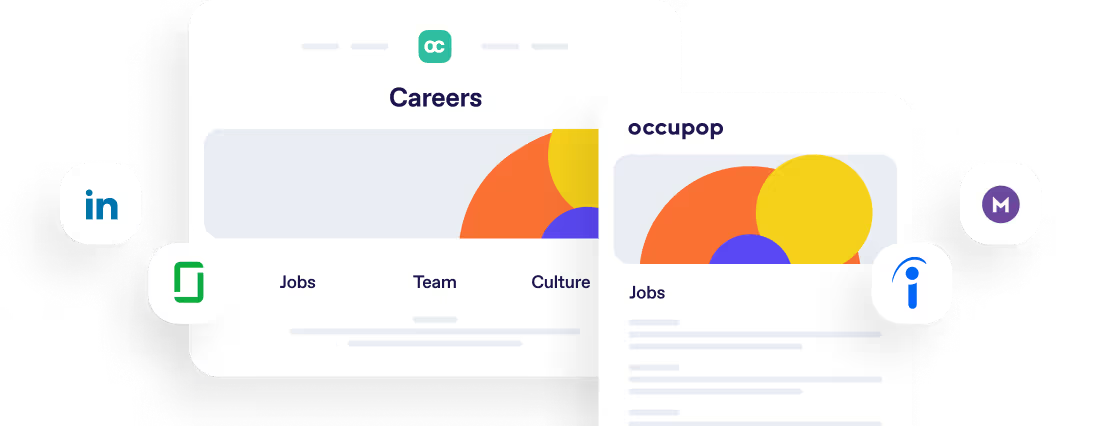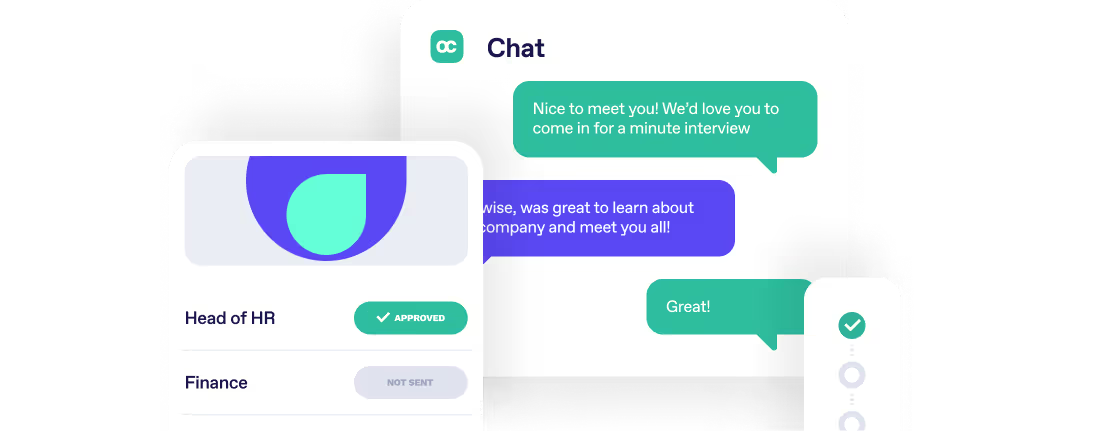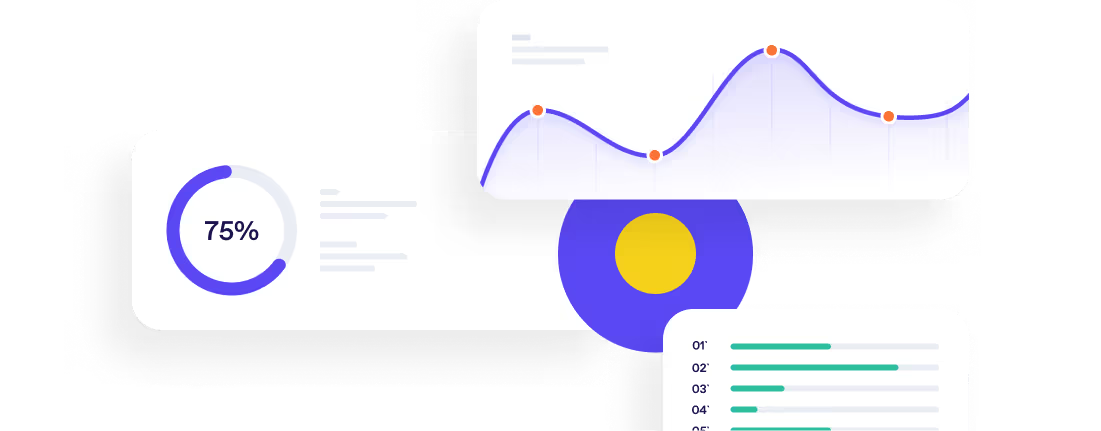Why - and how - to Hire for Personality



In a Harvard Business Review (HBR) article by Dave Winsborough and Tomas Chamorro-Premuzic, entitled ‘Great teams are about personalities, not just skills’, they consider how the different personalities that make up a team can influence each other. We learn that even the most talented individuals can fail when they are part of a team that hasn’t struck the right balance of personalities.
In this blog, we will discuss how you can make HBR’s findings work for your hiring process - so your employees can be more successful more of the time.

Why hire for personality fit?
HBR’s research focused on how the personalities of team members rather than technical skills contribute to team performance. They found that the psychological factors are just as, if not more, a determinant of the team’s ability to perform than skills and experience. HBR gives the analogy of a football team. All members may be highly trained at their sport, but if they don’t get along, they may never win a football game. As most successes for your company are the result of a team effort, creating teams that have a harmonious mix of personalities is essential in ensuring they’ll play ball!
To better understand how teams function, it’s helpful to consider the two roles each person plays in a group - a functional role and a psychological one. The functional role is based on their job title or position and relies on their technical skill. Their psychological role is down to what kind of person they are. When it comes to hiring, it’s common that companies will only focus on the functional role without considering how the psychological one will influence teamwork.
So hiring managers, your hiring process shouldn’t be completely focused on skills. Think of how that candidate’s personality will contribute to your team’s overall success too. Before kicking off your hiring process, it’s important you properly define what it is you want that team to achieve and outline the individual personality traits needed to accomplish that goal. For each step, outline the skills and qualities the employees working on these tasks will require to successfully achieve them. Throughout the interview process, utilise tools like interview scorecards to ranks candidates on their suitability to the role.
Virgins CEO Richard Branson is a firm believer in the power of hiring for teams based on personality.
“The first thing we look for when hiring new staff is personality. In my eyes, personality always wins over book smarts. These personalities make our staff successful, and, in turn, our businesses successful – they also keep our company culture vibrant.”
An interesting example of a company taking hiring teams to the next level is Stripe.
They are hiring actual teams that have a proven track record of effectively working together on past projects. They may be a group of friends, or current colleagues looking for a career change.
While you don’t need to go to the same heights as Stripe, hiring managers should take a holistic view when it comes to hiring, and focus on how both the candidates skills and personality can contribute to the team as a whole.
INSERT-CTA
How to hire for personality fit?
1. Analyse your current team’s personalities
If you want to hire the right personalities for your team, it’s essential you learn where your teams currently stand personality-wise. You may find that your teams already have the perfect mix!
In Harvard business Reviews article, they discuss how psychological team roles are primarily a product of peoples personalities and recommend having a balanced mix of the following types of employees in order to make a team perform well:
- Results-oriented. Team members who naturally organise work and take charge tend to be socially self-confident, competitive, and energetic.
- Relationship-focused. Team members who naturally focus on relationships, are attuned to others’ feelings, and are good at building cohesion tend to be warm, diplomatic, and approachable.
- Process and rule followers. Team members who pay attention to details, processes, and rules tend to be reliable, organised, and conscientious.
- Innovative and disruptive thinkers. Team members who naturally focus on innovation, anticipate problems, and recognise when the team needs to change tend to be imaginative, curious, and open to new experiences.
- Pragmatic. Practical team members, hard-headed challengers of ideas and theories tend to be prudent, emotionally stable, and level-headed.
Carrying out a personality analysis will help you uncover the personality profiles of your team, and give you great insight into your team dynamics whilst working as an indicator of future success or failure for particular tasks.
So how can you do this? You may conduct surveys and interviews with current employees or even analyse past performance reviews. However, breaking down that data into solid insights into your employee’s personality types is difficult and might not relay full accuracy. Therefore, one of the best ways to gather quick and actionable insights into your employee’s personality types is by conducting psychometric tests, which will be discussed further below.
Once you have a clear picture of your current teams personalities, incorporate psychometric testing into your hiring strategy too. Psychometric tests can be used at any stage during the candidate selection process. Most commonly they are included alongside the initial interview, however they can be used as a first step to narrow your pool of candidates or in later stages of the selection process as part of an assessment centre.
Utilising personality profiles will help you to assess whether an incoming team member will be a good fit within the current team dynamics. Research by Tippie College of Business shows that employees that feel like they’re a good fit with their team are more satisfied at work and more likely to be loyal to the company, so while this process may be time-consuming, your company will make back that time and money in spades from reduced turnover rates.

2. What are psychometric tests and how can I use them?
Psychometric tests are standardised questionnaires that are based on measured norms to measure both a person’s cognitive abilities and their behavioural style. They are scientifically sound and are based on a large volume of psychological research. There are many different types of tests, but overall, they aim to understand and measure peoples motivators, values and priorities regarding situations and tasks. Incorporating psychometric testing into your recruitment process will provide a reliable indication of that candidates working style as well as how well they’ll interact with the working environment. This includes how they’ll interact with their future colleagues.
When it comes to choosing a psychometric test to use in your recruitment process, you may find you are spoiled for choice. There’s a variety of tests you can choose from that will suit the criteria of different roles. Depending on the role, some tests may suit better than others.
Popular tests used by companies are:
- Myers Briggs Type Indicator
- DISC
- FIRO-B
- Thomas-Kilmann Conflict Mode Instrument
- Logical Reasoning Assessment
Just as choosing the right test is essential, selecting the proper means of performing the analysis is vital to the accuracy of the results. If you decide to run the tests in-house, ensure that those conducting the tests receive adequate training and accreditation. Alternatively, you can outsource to an accredited consultant. They will be able to understand your business needs and provide the most beneficial insights for your purposes.
Once you have struck the right balance of skills and personalities within your teams, you can rest assured that your employees have the right social environment to perform their best, both collaboratively and individually!
INSERT-LINE
What is Occupop?
Occupop is a recruitment software offers a centralised platform for your entire team to connect, collaborate and communicate. We post your job across 16+ recruitment channels and our A.I. technology offers a helping hand during each part of the process, including scoring CVs and scheduling interviews. Your team can rank candidate suitability with interview scorecards and save up to 4-5 hours a week. That means you have more time to focus on welcoming your new hire to the team!
Learn more about how our software works here.
Summary Points
Even the most talented individuals can fail when they are part of a team that hasn’t struck the right balance of personalities.
- Why hire for personality fit: To better understand how teams function, it’s helpful to consider the two roles each person plays in a group - a functional role and a psychological one. Your hiring process shouldn’t be completely focused on skills. Think of how that candidate’s personality will contribute to your team’s overall success too.
- How to hire for personality fit: If you want to hire the right personalities for your team, it’s essential you learn where your teams currently stand personality-wise. You may find that your teams already have the perfect mix! Some personality traits that give a good balance: results-oriented, relationship focused, process followers, innovative thinkers and pragmatic.
- What are psychometric tests and how can I use them? Psychometric tests are standardised questionnaires that are based on measured norms to measure both a person’s cognitive abilities and their behavioural style. They are scientifically sound and are based on a large volume of psychological research. If you decide to run the tests in-house, ensure that those conducting the tests receive adequate training and accreditation. Alternatively, you can outsource to an accredited consultant. They will be able to understand your business needs and provide the most beneficial insights for your purposes.
Simple. Beautiful.
Recruitment Software.
HR updates sent straight to your inbox
You might also like...


Manage your entire hiring process simply, from engagement to management, hiring and onboarding







Simple. Beautiful.
Recruitment Software.
Recruitment Software.






